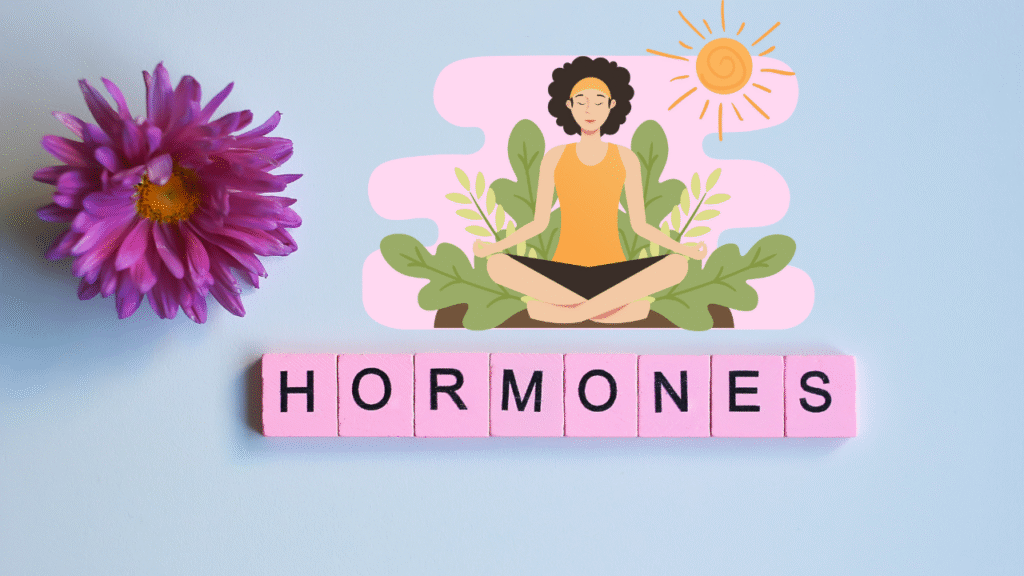
Hormones are the body’s chemical messengers, regulating critical processes like metabolism, mood, sleep, and reproduction.
When hormonal imbalances occur—often due to stress, poor diet, inactivity, or environmental toxins—they can lead to fatigue, weight gain, mood swings, and even infertility. The good news? You can balance hormones naturally with lifestyle changes, dietary adjustments, and supplements. In this article, we’ll explore 13 science-backed ways to restore hormonal health, optimized with SEO keywords to help you achieve energy, vitality, and overall wellness.
Hormonal imbalances can disrupt your health and well-being, causing symptoms like chronic fatigue, weight fluctuations, anxiety, and reproductive issues. Factors such as chronic stress, poor nutrition, and exposure to endocrine disruptors can throw hormones like cortisol, insulin, estrogen, and testosterone out of whack. By adopting natural methods, you can support hormone regulation, improve energy levels, and enhance overall health.
13 Natural Ways to Balance Hormones
1. Manage Stress Levels
Chronic stress elevates cortisol, disrupting hormones like insulin, estrogen, and testosterone. Reducing stress is key to hormonal balance.
- Meditation & Mindfulness: Practice 10–15 minutes daily to lower cortisol levels and promote relaxation.
- Deep Breathing Exercises: Try diaphragmatic breathing to activate the parasympathetic nervous system and reduce stress hormones.
- Regular Exercise: Activities like yoga, tai chi, or walking help balance cortisol and boost mood.
2. Eat a Balanced Diet
Your diet directly impacts hormonal health. Excess sugar, refined carbs, and processed foods can lead to insulin resistance and hormonal disruptions.
- Healthy Fats: Include avocados, olive oil, and fatty fish like salmon for omega-3 fatty acids, which reduce inflammation and support hormone production.
- Protein: Eat lean meats, eggs, or legumes to provide amino acids for hormone synthesis and muscle health.
- Fiber: Fruits, vegetables, and whole grains promote gut health and regulate estrogen levels.
- Avoid Excess Sugar: Limit sugary snacks and processed foods to prevent blood sugar spikes and hormonal imbalances.
3. Prioritize Sleep
Sleep is crucial for hormone regulation, as it allows your body to repair and balance cortisol, ghrelin, leptin, and melatonin. Lack of sleep can increase stress hormones and disrupt hunger hormones.
- Sleep Routine: Go to bed and wake up at consistent times.
- Limit Blue Light: Avoid screens an hour before bed to protect melatonin production.
- Create a Relaxing Environment: Keep your bedroom cool, dark, and quiet for restful sleep.
4. Exercise Regularly
Exercise improves insulin sensitivity, boosts growth hormone, and reduces cortisol. It’s a powerful tool for hormonal balance.
- Strength Training: Lift weights or do bodyweight exercises to enhance testosterone and muscle growth.
- Cardio: Activities like running, cycling, or swimming improve cardiovascular health and lower stress hormones.
- Yoga & Pilates: These reduce cortisol while improving flexibility and strength.
5. Support Gut Health
A healthy gut microbiome regulates hormones like estrogen, preventing estrogen dominance.
- Probiotics & Prebiotics: Eat yogurt, sauerkraut, kimchi, garlic, onions, or bananas to nourish gut bacteria.
- Fermented Foods: These support digestion and hormone regulation with beneficial bacteria.
- Limit Antibiotics: Use only when necessary to avoid disrupting gut health.
6. Balance Blood Sugar Levels
Stable blood sugar prevents insulin spikes that disrupt other hormones.
- Eat Regular Meals: Avoid skipping meals to prevent blood sugar dips.
- Avoid Sugary Foods: Minimize sugary drinks and snacks to reduce insulin resistance.
- Include Protein & Fiber: These slow sugar absorption, supporting hormonal balance.
7. Try Herbal Supplements
Certain herbs can support hormonal health naturally.
- Maca Root: Balances estrogen and progesterone, especially for menopause symptoms.
- Ashwagandha: An adaptogen that lowers cortisol and supports thyroid function.
- Chasteberry (Vitex): Reduces PMS symptoms and estrogen dominance.
- Rhodiola Rosea: Lowers stress hormones and promotes hormonal balance.
Note: Consult a healthcare provider before starting supplements.
8. Detoxify Your Environment
Endocrine disruptors in everyday products can interfere with hormone production.
- Choose Organic Foods: Avoid pesticides that mimic estrogen, especially in the “dirty dozen” like strawberries and spinach.
- Use Natural Cleaning Products: Opt for vinegar or baking soda-based cleaners to reduce chemical exposure.
- Avoid BPA: Use BPA-free containers or glass/stainless steel to minimize hormone disruption.
- Switch to Natural Beauty Products: Choose paraben-free and phthalate-free skincare.
9. Maintain a Healthy Weight
Excess weight can lead to insulin resistance and estrogen dominance, while being underweight can reduce estrogen levels, causing irregular periods or infertility.
- Balanced Diet: Focus on proteins, healthy fats, and carbs in moderation.
- Exercise: Combine strength training and cardio to maintain a healthy weight.
10. Stay Hydrated
Water is essential for transporting hormones and maintaining balance. Dehydration increases cortisol.
- Drink Regularly: Aim for at least 8 glasses of water daily.
- Add Electrolytes: Include electrolytes for active individuals to support hormone regulation.
11. Support Liver Function
The liver detoxifies excess hormones like estrogen.
- Eat cruciferous vegetables (broccoli, Brussels sprouts) to enhance detox pathways.
- Drink lemon water to aid digestion and toxin elimination.
12. Increase Magnesium & Zinc Intake
Magnesium reduces stress hormones and supports thyroid function, while zinc boosts testosterone and reproductive health.
- Sources: Nuts, seeds, spinach, legumes.
- Meal Idea: Add pumpkin seeds to salads for a magnesium and zinc boost.
13. Cut Down on Caffeine & Alcohol
Caffeine raises cortisol, and alcohol disrupts estrogen and testosterone.
- Limit intake to support adrenal and liver function.
- Opt for herbal teas or water as hormone-friendly alternatives.
Take Control of Your Hormonal Health
Balancing hormones naturally requires a holistic approach—from managing stress and eating a balanced diet to incorporating exercise and reducing environmental toxins. These 13 natural strategies can help you improve energy, mood, sleep, and reproductive health, promoting overall wellness. If you suspect a serious hormonal imbalance, consult a healthcare professional for personalized guidance.
Start with small changes, like sipping lemon water, eating cruciferous vegetables, or practicing meditation, and watch your hormonal health transform.
Which of these hormone-balancing tips will you try first? Share your thoughts or favorite healthy recipes in the comments, and let’s inspire each other to live vibrantly!
